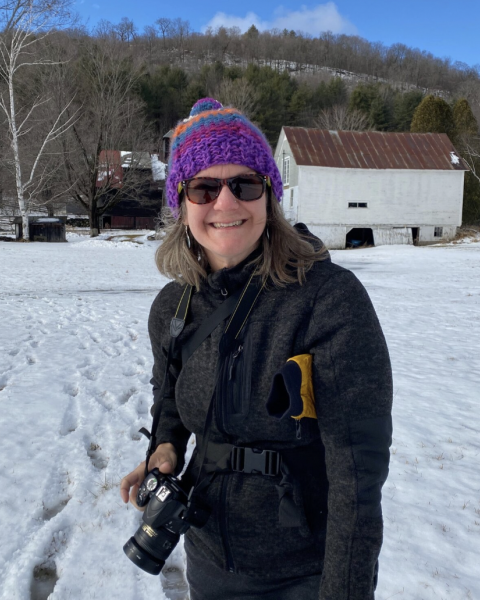Uncured Markets
This interview is part of the NH Food Alliance’s and Ink + Light Creative’s Field Photos Project, a photo-interview series telling the story of New Hampshire’s vibrant and diverse food system. Explore more from the Field Photos Project here >>
Mark Florenz established Archway Farm with a vision to work while still spending time with his two sons. This was back in 2014. Today, Mark provides pork to his community in Keene, the largest municipality in the Monadnock region. Mark’s small, family-owned farm processes 150-200 pigs a year, while maintaining its Animal Welfare Approved (AWA) certification, a well-regarded certification that ensures animal welfare, pasture-based farming, and sustainability. Archway Farm’s pigs are born, raised, and butchered (post-slaughter at USDA facilities) on the farm, with only one full-time employee in addition to Mark.
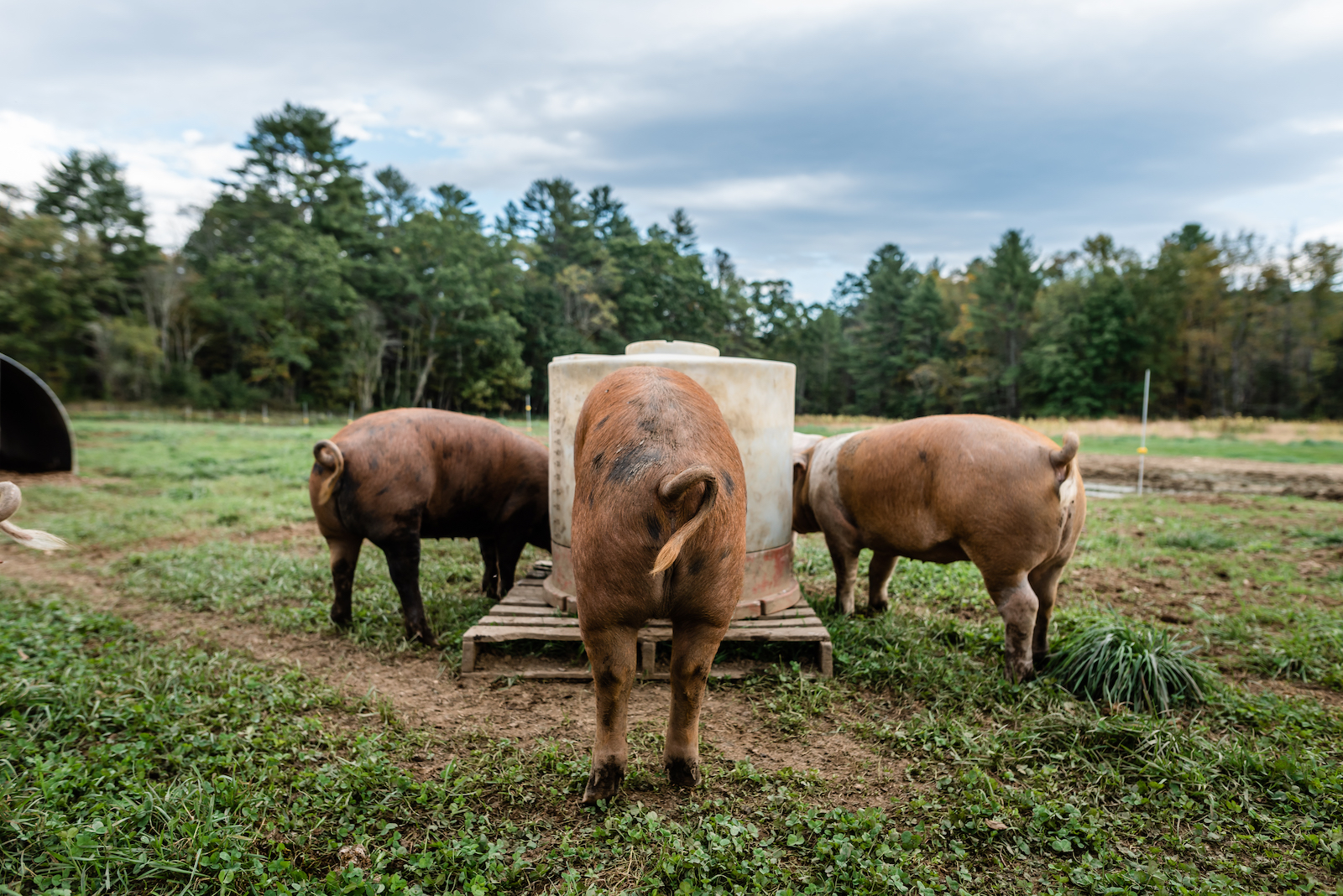
I spoke with Mark about the many obstacles Archway Farm faces. He says the foremost is increasing demand for his locally-raised pork. Mark recognizes how special New Hampshire is for small-scale farming, in part to land and market availability, as well as how interested the Monadnock Region is in supporting local businesses. But without a well-established and connected pork industry in the state, Archway Farm relies on facing challenges creatively to bring sustainable pork products to the New Hampshire food system.
Daisy Young (DY): Tell me a little about how Archway Farm came to be. What inspired you to start farming and what do farm operations look like today?
Mark Florenz (MF): I grew up around farming; my parents had a hobby farm in Western Maine. Post-college I was living around New England and Boston. At some point, my family looked to be in a more rural area, so we moved to Keene and have been here for the last 20 years. Archway Farm is a livestock farm raising pigs and chickens, but pigs are the majority of what we do. In 2014 or 2015, we started selling wholesale, primarily in the Monadnock region. We have a significant farm store where we sell our products as well.
We process 150-200 pigs a year on average. All of the pigs are born and raised on our farm. We operate pretty consistently year-round, so every month we’re taking pigs to the butcher and having new piglets, it’s a continuous cycle. It’s just one other employee and me to give you a sense of size. We don’t do any of the slaughter for the pigs at the farm. It’s all done at USDA inspected slaughterhouses. Once the pigs are slaughtered, we’ll bring them back and cut up some of the whole pigs, and then we can sell them directly to customers. The slaughterhouse does some of the products for us, so it’s kind of a mix.
Just this past year, we started setting up a commercial kitchen, which allows us to do some of the processing, which was complicated enough in and of itself. The slaughter and required USDA inspections bring a whole set of regulations. There’s a specific scale where you have to have a USDA inspector on-site whenever you are slaughtering animals. If you are only our size, it just doesn’t make sense to do that.
DY: How did COVID-19 affect business at Archway? Do you think any changes you implemented will stick as we shift out of the pandemic?
MF: Honestly, the pandemic has been pretty good for us from a business perspective. When it started, our direct business skyrocketed; it’s what allowed me to hire a full-time employee and have enough business to justify that.
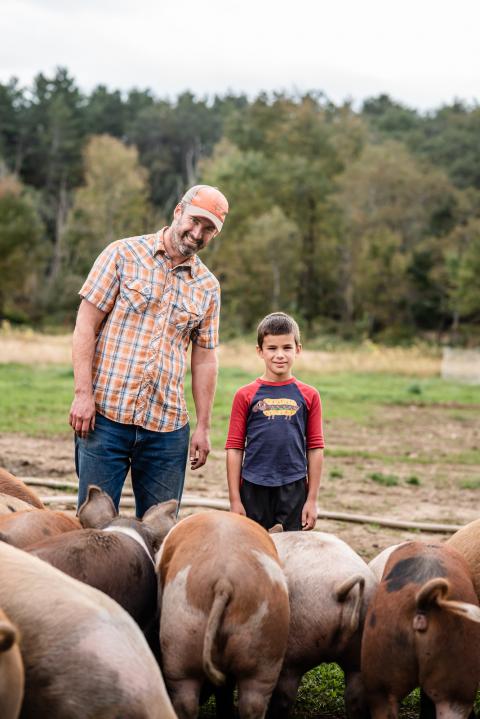
Mark Florenz, owner of Archway Farm in Keene, New Hampshire, with his son. Photo by Katie Goodall of Ink + Light Photography.
So there have certainly been many changes that have come along with it but, for the most part, they have all been good for us. We’ve had to manage some supply chain issues, slaughterhouse issues, and customer hesitancies about COVID. But those have all been relatively manageable, especially given the increased business we’ve seen from people looking to shop more locally and shop at smaller stores. And we didn’t have all of the supply chain issues, empty shelves, and crowds that the grocery stores did. We are small— normally there isn’t more than one person in our farm store at a time. We’ll see where things end up in five years, but I think people are just more aware of where their food is coming from.
DY: Aside from the pandemic, what industry challenges have you faced as a New Hampshire pork farmer?
MF: It’s certainly a challenge on the production side. It’s a double-edged sword because in some ways it’s good that there are fewer pork farms here because there’s less competition. But there is also less of a knowledge base. We brought in our specific pig equipment from the Midwest because that’s where it all is. We have a grinder mixer for our grain that came from there because there just isn’t enough business in New Hampshire. We have a hard time getting quality, reliable livestock around here. In a lot of ways, that’s why we raise all of our pigs on-site. Nobody produces and sells piglets because it just doesn’t make sense around here.
So there are those problems. But from a business perspective, those farm production challenges are not what’s going to make or break my business at the end of the day. They are all things that you figure out and overcome. For me, it’s much more the sales and marketing that will make or break local farms; where they sell their products, how much they cost relative to conventional products, and how they are marketing and branding themselves. That is what I lose sleep over more so than the pigs themselves.
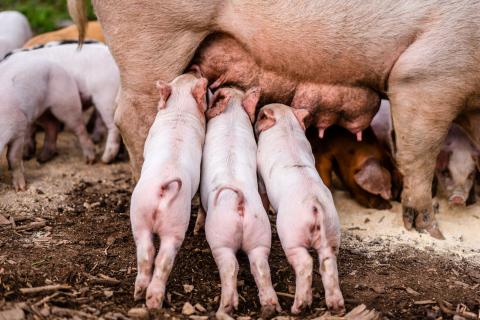
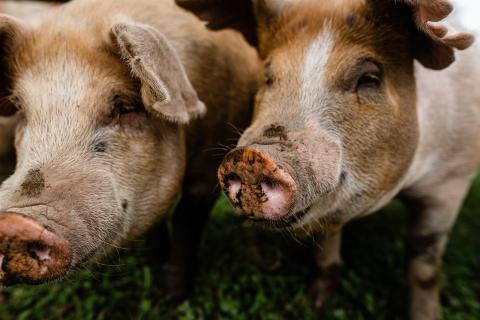
DY: Imagine your organization in 10 years, it’s thriving. What does thriving look like to you? How has Archway overcome the industry and marketing challenges you mentioned?
MF: I have been happy with our focus on staying in the Monadnock region. Our other focus is on adding more value to the pork from start to finish by controlling the feed, the livestock, all the way through processing the meat. That is a way to bring value to the product while keeping more dollars local. I’d like to continue to work on that, there’s still a lot more we can do on both ends of the process.
Also, I hope to continue getting in front of more customers in the Monadnock Region to increase awareness. It’s a challenge that people buy their food through large grocery or convenience stores, which are so difficult for local farms to get into from a size and scale perspective. We are in a good position where we are relatively convenient to Keene. A lot of farms don’t have that benefit of location and are trying to draw people in from much further away or trying to manage with farmers’ markets. Again, it’s a challenge when the majority of people are buying their food through big grocery stores, where they do a good job of making products look local but really aren’t that local. I’m not sure that’s the store’s fault, it’s part of a system of what products sell and how they make their money.
So many of the obstacles of whether people buy local or not have to do with access and having products in front of them. The cost is a factor, but a lot of times I don’t think it’s the primary factor. Moreso it’s about what is in front of people, what’s convenient, and what they think of. They go to the grocery store and buy most of their groceries and it’s easy to buy whatever kind of fancy local-looking meat is there versus going out to an actual farm store.
DY: Tell me about what gets you out of bed in the morning. How does Archway sustain you and your family?
MF: My wife and I were both working office jobs. And then we had kids, and we were looking for one of us to have more flexibility to stay home. I had always had an interest in farming and that’s sort of what started the whole thing when my kids were toddler-age. The business has grown along with the kids, who are in upper-elementary school now. It’s worked out well for our family and it’s been a nice lifestyle for the kids growing up. I frankly enjoy it a bit more than a traditional office job. We still have health insurance through my wife’s off-farm income, so it’s the best of both worlds.
I do it at the end of the day because I enjoy it and it works well for our family. I like raising the pigs and having control and insight into the whole process of where our food comes from. I like the environment in which it gives me to raise my kids. I’m fortunate that I have the stability of my wife’s off-farm income to fall back on.
In that sense, profitability is not as important as if it were our sole income. Even a lot of the commodity farms out in the Midwest still have off-farm income and are getting their health insurance from somewhere else. Sometimes I have a hard time justifying that, but it is the nature of farming in the United States.
DY: Do your kids like to help out at the farm?
MF: They like to be around it, I’d say. They don’t have chores that they have to do. I think it’s good for them just to grow up in it. It’s not something I’m forcing on them, so to speak. I want the kids to enjoy it and be around it. They enjoy being in the environment, being outside, seeing it all. It’s as much farming as running a small business to us. I spend more time running a small business than caring for pigs in some ways!
DY: What if your children wanted to follow in your footsteps in farming? What advice would you give young people who want to join this line of work?
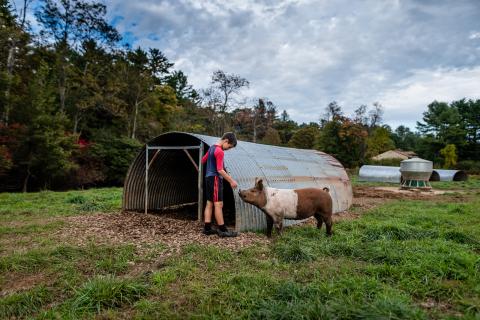
MF: I think there are opportunities out there to work for some high-quality, locally-focused farms. I can think of ones that I have run into on social media across New England. I think they are getting better about paying a reasonable wage to employees.
Starting your own business, and having the capacity to do so, is a whole other can of worms. I would think long and hard before I recommend someone do that. Make sure you have the resources and dedication to do that. But I think New England is great for local farming, and better situated than a lot of regions in the country. I think there’s a customer base that’s really interested in it, as well as land and markets available. If you are living in Iowa you have a lot of great farmland, but I’m not convinced that you have a customer base that’s really as interested in locally branded products.
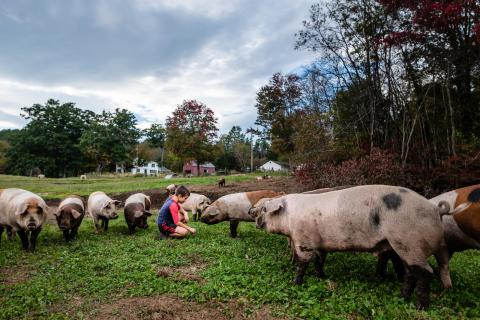
Mark's son with the herd at Archway Farm in Keene.
DY: I saw you recently started a Meat Shares Program, which seems similar to a Community Supported Agriculture (CSA) model. How will this program help your goal to increase product visibility?
MF: We have been selling a fair amount through our farm store for the last 3-4 years. We are not a tourist destination, so it’s a lot of recurring customers. I see the same names over and over again. I always feel like people are interested in the product, but I won’t see them come for a couple of months. What I’m trying to do with the meat subscription is give them a hook to purchase from us. It’s the scenario where the person has the income and desire to purchase our product but it isn’t in a grocery store where it’s easy and they’re low on time. It’s just easier to buy meat from the supermarket rather than coming out to Archway Farm. I’m hoping the meat subscription will give the hook and incentive for them to get the meat from us on a more regular basis rather than intermittently.
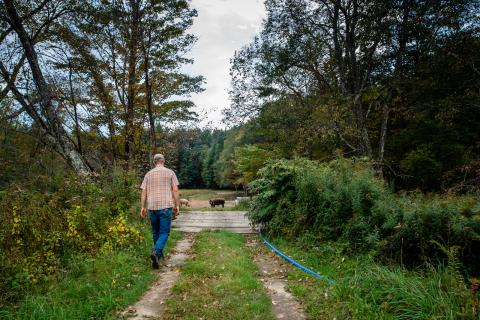
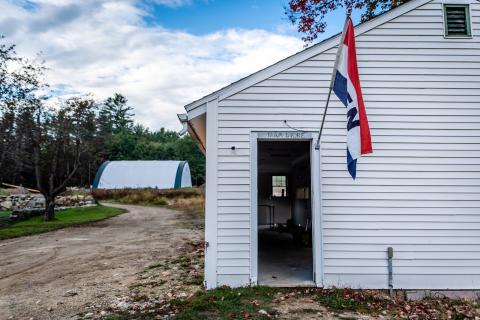
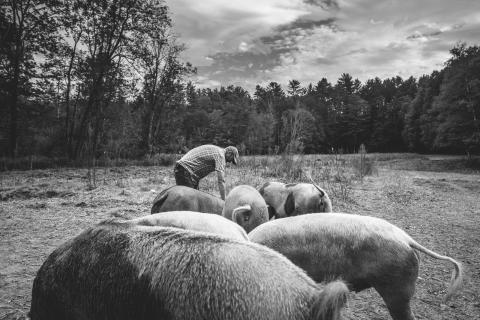
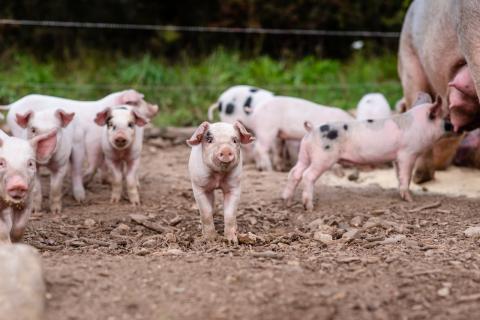
DY: Tell me about the importance of local food production. What action can every individual take to support their local food culture?
MF: We have such a disconnect now between consumption and the production of food. People don’t understand what goes into producing food and what the considerations are for farms that are producing it. I think the more you can keep the production close to people, it gives them a better understanding of what the tradeoffs are of what they are consuming. Whether it’s food or forest products, I think buying local keeps people closer to the process and more informed about the decisions versus having to rely on a glossy label, or grocery product, when in reality you have no idea where it came from, you are just taking their word for it.
I urge people to buy local when they can and be aware of the farms, and what their challenges are. Again, I think New Hampshire is blessed to still have a lot of farms close to where people live that offer direct-to-consumer products and are open to the public. It’s a great state to live in from that perspective and people should take advantage of it.
Archway’s farm store is open every day from 9AM to 7PM. You can order whole and half pigs or join the brand new Meat Shares program on their website. Product options are always changing, so make sure to tune into their Facebook and Instagram for updates and more information.
This interview has been edited for clarity and length.



